Talking Books – 70.1
David Lindley Obituary: The “Talking Books” Interview We Could Not Do
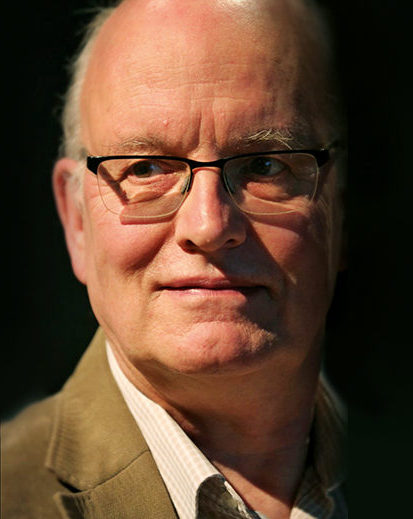
David Lindley was to be my next “Talking Books” guest, that interview intended for the previous issue of The Shakespeare Newsletter. He agreed, I requested review copies of his books not already in my library, these began arriving, and I started reading. The actual interview was delayed by two factors. COVID restrictions through much of 2020 and into 2021 kept me out of the campus library and away from the books by David that publishers refused or neglected to send. Then, when I checked in with David to report my progress, he told me he was very ill, getting treatment but fighting for his life. I kept reading while writing other things. David improved but was soon hit again, and his condition became worse. At his request, I emailed every couple of months to check in, but the news was never good. I wrote to David about a week before his death. I am not sure that message was muddled. I did not want to bluntly ask “What do you want to say before you die?”, so I asked if David wanted to do a short version to have something constructive to do, leaving my purpose vague. David did not, perhaps could not, reply. What follows is the introduction I planned for our interview augmented in three ways, though readers may not notice the first. I have added some details about certain books, details that I would usually make part of a question about that book. Secondly and more obviously, I have written about some of the books as if giving a short review. I did this when a question combined with David’s comments would have more fully explained a book. The final difference is that I occasionally state some of the questions I would have asked had the interview gone forward. My hope is that readers will think about their own answers to those questions and may write articles for The Shakespeare Newsletter after thinking these things through. Some of the books discussed incorporate two or three of these approaches. This is my obituary of and tribute to David Lindley.
David Lindley spent much of his career working an area of relative neglect in early modern literary studies: masque, music, and songs performed in plays. His first book The Court Masque (note the article and the singular Masque) is a collection of eleven essays by different scholars about many aspects of court masque. These essays cover Elizabeth’s reign through the Restoration, Thomas Nashe to John Dryden. Some chapters look at masque over time and others at details such as Inigo Jones’s use of French elements in his designs. Lindley shows in “Music, Masque, and Meaning in The Tempest” that the masque leaves characters in that play unsatisfied and does the same for audiences, because those characters are our proxies, a discontent that he believes is characteristic of the Jacobean theatre. Lindley appeared in The Tempest as a boy, but this is his first engagement with the play in print that I have found. Scholars showed increased interest in masques prior to the 1984 publication, but there was still much to explore. It is in part due to this collection and Lindley’s subsequent work that exploration of masques has progressed as far as it has. 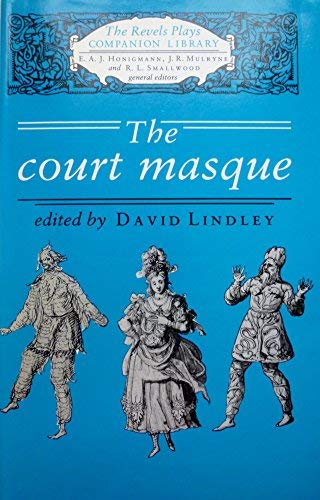
The similarly titled (note the lack of an article and the plural of Masques) Court Masques: Jacobean and Caroline Entertainments, 1605-1640 is a collection of eighteen masques by Thomas Campion, Thomas Carew, George Chapman, Samuel Daniel, William Davenant, Ben Jonson, Aurelian Townshend, and the anonymous Coleorton Masque. The book has eleven illustrations of costumes, manuscript, and design in the center signature. The “Index to Performers” does not give page numbers but is a series of brief biographical sketches. The introduction makes the case for studying masques: “For the modern reader, then, the court masque can profitably be studied, not simply as the mouthpiece of absolutist ideology, but as a stage where many of the contradictions of that ideology were concisely or unconsciously played out” (xvi). This book made available a variety of masques to study and teach.
In between, Lindley wrote two books. The first is Lyric in The Critical Idiom series that give extended explanations of aspects of literature, such as Heather Dubrow’s Genre and Clifford Leech’s Tragedy. Lindley told me this book is not worth discussing. He should know, but I like it. I have never known the meaning of “lyric” in poetry. Oh, I looked it up several times over the years and found different definitions that did not always agree with each other and did not fit the way I had just seen the word used. Lindley gets to the heart of this problem early, writing “the notion poets and readers have of lyric genres is profoundly affected by fluctuation of systems of classification and poetic practice through history” (5). This deftly explains the source of my problem. The first chapter continues to log the different meanings “lyric” took from antiquity through early modern times with glances ahead to Romanticism and into the twentieth century. The second chapter seems close to Lindley’s heart, “Lyric and Music.” He begins with the separation of lyrics from music, but the bulk of the chapter looks at ways “the relationship between music and poetry have influenced the nature of lyric poems” (30) and concludes that music serves poets by providing “a formal model for poems [that] can be wittily gestured towards and represented in poems which have a musical theme,” then concludes with Auden’s “poetry should be as much like music as possible” (48). His final chapter is on the persona of the speaker/narrator in lyric poetry and ends with comments about the tension between lyric verse and the desire “for a critical label that will be of general application” (84), the problem that vexed me for so long. I would have asked Lindley how these ideas informed his later work on music and masque. Had he said they did not, we would have cut the question, but had he said yes, we might have found new insights in both his work and some of the texts Lindley has written about.
The other book is Thomas Campion a study of Campion’s English works excluding his treatises, its chapters organized by poetry, music, poetry with music, and masques, the latter with details about the occasions celebrated by the masques. Lindley told me that the book is also not worth discussing. I have been unable to secure a copy, but portions are available through Google Books.[1] I am not an expert, but those portions look fine to me. Lindley later wrote about Campion’s life for the Oxford Dictionary of National Biography.
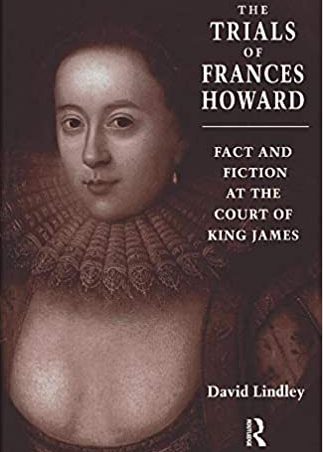 Lindley seeks to understand the process by which women are villainized through understanding the villainization of one woman in The Trials of Frances Howard: Fact and Fiction at the Court of King James and notes “in the process questions inevitably arise about the ways in which narratives are constructed and reproduced, and about the nature and use of historical evidence” (2). Lindley goes deep into Howard’s biography and the events around her life. This is most obvious in transcripts and contemporary comments condemning Howard for betraying and murdering her husband, if she really did, but also the many literary works that touched her life, especially masques and poems. To give two examples separated by many years, Ben Jonson wrote Hymenaei for performance on the night of Howard’s marriage to Essex when she was 14 and he 13. Late in the book, p. 187, Lindley publishes an anonymous poem for the first time that analyzes Howard’s culpability. Dozens of literary texts are cited in between that illuminate Howard’s life and predicament or illustrate the attitudes of people during her time, works by Campion, Elizabeth Carey, George Chapman, John Donne, Michael Drayton, John Ford, John Marston, Thomas Middleton, William Painter, Edmund Spenser, and John Webster, to name some of the better-known writers. I confess little interest in the ways that narratives are constructed but was fascinated by the exposition of these literary texts. This is a great book for that alone.
Lindley seeks to understand the process by which women are villainized through understanding the villainization of one woman in The Trials of Frances Howard: Fact and Fiction at the Court of King James and notes “in the process questions inevitably arise about the ways in which narratives are constructed and reproduced, and about the nature and use of historical evidence” (2). Lindley goes deep into Howard’s biography and the events around her life. This is most obvious in transcripts and contemporary comments condemning Howard for betraying and murdering her husband, if she really did, but also the many literary works that touched her life, especially masques and poems. To give two examples separated by many years, Ben Jonson wrote Hymenaei for performance on the night of Howard’s marriage to Essex when she was 14 and he 13. Late in the book, p. 187, Lindley publishes an anonymous poem for the first time that analyzes Howard’s culpability. Dozens of literary texts are cited in between that illuminate Howard’s life and predicament or illustrate the attitudes of people during her time, works by Campion, Elizabeth Carey, George Chapman, John Donne, Michael Drayton, John Ford, John Marston, Thomas Middleton, William Painter, Edmund Spenser, and John Webster, to name some of the better-known writers. I confess little interest in the ways that narratives are constructed but was fascinated by the exposition of these literary texts. This is a great book for that alone.
Lindley was a Contributing Editor for and edited eleven of Jonson’s masques in The Cambridge Edition of the Works of Ben Jonson, nine of which he had not edited for Court Masques. In its infinite lack of wisdom, CUP would not send a review copy of this set in 2013 when I interviewed the late Ian Donaldson, one of the General Editors, so I have nothing insightful to write about Lindley’s work on these masques. Instead, I would have asked about ways his approach to editing Jonson’s masques changed since 1995 and what we have learned about his masques since.[2]
Lindley had returned to The Tempest in 2002 when he edited the New Cambridge Shakespeare Edition of that play. There are many great editions of The Tempest, including the superb Arden edition by former “Talking Books” guest Virginia Mason Vaughan, co-edited with her husband and frequent collaborator, Alden T. Vaughan. Lindley’s introduction covers everything expected such as date, sources, structure, the supernatural, stage history, comments about the critical reception, and it has the best consideration I have seen of the colonialism often perceived in the play. Lindley takes a hard look at the case for colonialist discourse, presents it, but also finds deep flaws in it based on modern misunderstandings of the early modern world. I have always been a sceptic of colonialist readings and I finished the introduction confident that skepticism is warranted. I invite readers to study this introduction for themselves and consider if some people read into the play the politics they want to find there. Of course, the masque gets its own treatment, and the songs are printed in an appendix with the Robert Johnson settings. A revised edition was published a decade later.
He also wrote The Tempest volume for Arden’s Shakespeare at Stratford series that unfortunately ended after just six books. These survey and contrast productions performed in Stratford-upon-Avon in roughly the last half of the twentieth century. Lindley’s volume covers Tempest productions between 1946 and 2002. He begins with a character-centric approach, devoting chapters to Prospero, Ariel, Caliban and the other comic villains, Ferdinand and Miranda, and the lords. Lindley finishes with two chapters, “Staging the Spectacular” and “Music and Song.” It is fascinating to see the approaches of different directors to the masque and other musical elements, making Lindley the ideal writer for this volume. I wish I could have asked him about other productions he has seen elsewhere or since 2002, how this extends or changes his arguments, and if there are approaches to staging the play that simply do not work.
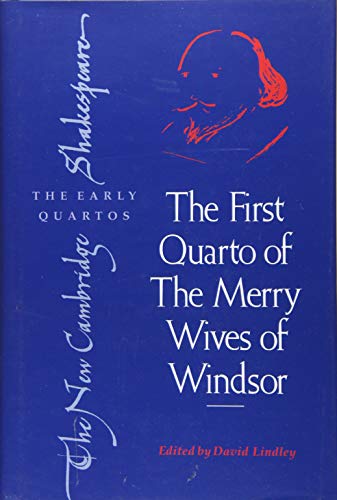 Another edited play is The First Quarto of The Merry Wives of Windsor, one of the fine New Cambridge Shakespeare Early Quartos editions. Lindley reviews the relationship of the play to the second tetralogy, concluding that it “is neither a sequel nor prequel, and its composition was not predicated on the kinds of narrative consistency and continuity that have come to be our conventional expectations of novelistic or filmic series. The comedy stands generically apart from the history plays” (5). This may be the only sensible view. After reviewing the relationship of the Quarto and First Folio texts and all the dating evidence, he tentatively settles that “though Q and F must have a common origin, it is very possible that, as they now stand, they record two distinct variants or developments of that originating text, and it is not by any means a straightforward task to decide which version has priority” (12). Lindley favors the theory that a notetaker or notetakers are responsible for the quarto text and introduces evidence from early modern times that the practice was more widespread than modern sceptics have acknowledged. Other explanations, such as memorial reconstruction and cutting a literary text down for performance, are more problematic. Lindley acknowledges different problems with notetaking, but still calls it the most “attractive proposition” (24). It is disappointing that Lindley does not devote a section of the introduction to the songs in 3.1 and the last scene. The 3.1 gloss, scene 8 in Lindley’s edition, merely mentions that the lyrics come from Marlowe mixed with a popular song of the time, that some of the lines are in the wrong order, and that F has more of the lyrics than Q. There are two incidences of singing in the last scene in Q, scene 18 in this edition, while there is one in F. The two incidents of singing after lines 14 and 63 may indicate different songs, the same song repeated, or one incidence of singing with an incomplete revision in the stage directions, my comment, not Lindley’s. The gloss following line 14 is “No lyrics are given for the song, as is not unusual in dramatic texts of the period” (75). The gloss following line 63 does not mention the song(s). F records the lyrics to the song, the first line being “Fie on sinful fantasy” (5.5.93). Had I been able to interview Lindley, I would certainly have asked about all the songs in The Merry Wives of Windsor, Q and F.
Another edited play is The First Quarto of The Merry Wives of Windsor, one of the fine New Cambridge Shakespeare Early Quartos editions. Lindley reviews the relationship of the play to the second tetralogy, concluding that it “is neither a sequel nor prequel, and its composition was not predicated on the kinds of narrative consistency and continuity that have come to be our conventional expectations of novelistic or filmic series. The comedy stands generically apart from the history plays” (5). This may be the only sensible view. After reviewing the relationship of the Quarto and First Folio texts and all the dating evidence, he tentatively settles that “though Q and F must have a common origin, it is very possible that, as they now stand, they record two distinct variants or developments of that originating text, and it is not by any means a straightforward task to decide which version has priority” (12). Lindley favors the theory that a notetaker or notetakers are responsible for the quarto text and introduces evidence from early modern times that the practice was more widespread than modern sceptics have acknowledged. Other explanations, such as memorial reconstruction and cutting a literary text down for performance, are more problematic. Lindley acknowledges different problems with notetaking, but still calls it the most “attractive proposition” (24). It is disappointing that Lindley does not devote a section of the introduction to the songs in 3.1 and the last scene. The 3.1 gloss, scene 8 in Lindley’s edition, merely mentions that the lyrics come from Marlowe mixed with a popular song of the time, that some of the lines are in the wrong order, and that F has more of the lyrics than Q. There are two incidences of singing in the last scene in Q, scene 18 in this edition, while there is one in F. The two incidents of singing after lines 14 and 63 may indicate different songs, the same song repeated, or one incidence of singing with an incomplete revision in the stage directions, my comment, not Lindley’s. The gloss following line 14 is “No lyrics are given for the song, as is not unusual in dramatic texts of the period” (75). The gloss following line 63 does not mention the song(s). F records the lyrics to the song, the first line being “Fie on sinful fantasy” (5.5.93). Had I been able to interview Lindley, I would certainly have asked about all the songs in The Merry Wives of Windsor, Q and F.
Just a bit outside of our direct interest is an edition of John Gay’s The Beggar’s Opera edited with Vivian Jones, which I have not seen. I would have included the book in our interview and asked what early modernists can learn from a study of Restoration drama and what students of Restoration drama can learn from early modern writers. The Beggar’s Opera seems to be one key text for this inquiry as far as musical performance is concerned. I looked forward to Lindley illuminating the point.
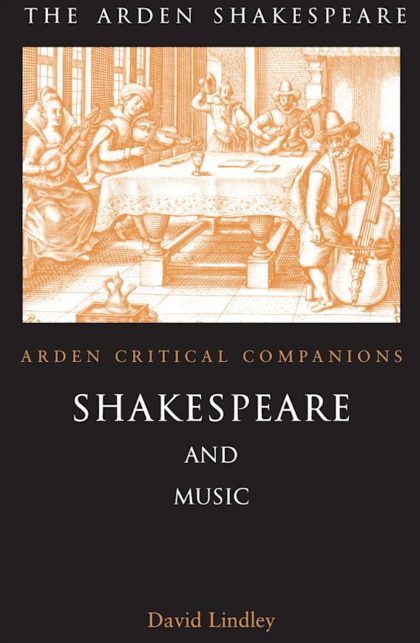
Lindley casts his critical net wide in Shakespeare and Music. He surveys music theory from antiquity through the Renaissance then turns to musicianship as practiced in early modern England. Lindley mines what he can from the mathematical and philosophical ideas that informed early modern understanding of music and the powers ascribed to it to benefit or harm people. He surveys music and ballads by several of Shakespeare’s contemporary playwrights and Jonson’s masques seeking to identify the ways that music was understood as sound and symbol. He looks at Shakespeare’s extant works to understand ways he used music broadly in the comedies and the use of popular songs in Othello, Hamlet, and other plays. Lindley ends with a chapter on those most musical of Shakespeare’s plays, Twelfth Night and The Tempest.
Shakespeare, Music and Performance, edited with Bill Barclay, began as a conference at Shakespeare’s Globe in 2013 with selected papers included in this book. It is well understood that music is part of Shakespeare’s work and intricate to some of his plays as is true in most early modern entertainments, but literary scholarship has often neglected music to study sources, character types and their humors, genre, themes, and similar approaches. When considered, music was generally mined for its sources and thematic values but rarely studied as music. This conference and book begin the process of correcting this. After chapters on the bands and performance spaces in early modern London, most contributors study what are called musical “practices” first in Shakespeare’s time, the Restoration and after, in film, and on the stage today. I am not familiar with the work of most of the contributors, though I note that former “Talking Books” guest Peter Holland contributed a chapter on the scores composed by Sir William Walton and Dimitri Shostakovich and the much-admired Carol Chillington Rutter co-authored the chapter “’Sounds like’ – Making Music on Shakespeare’s Stage Today” with Jon Trenchard. Lindley did not contribute a chapter, but the introduction he co-authored with Barclay is so cleverly constructed that with just a little editing the references to the specific chapters could be removed and what is left would be a very serviceable history of music in productions of early modern plays in the English theater from Shakespeare’s time through now.
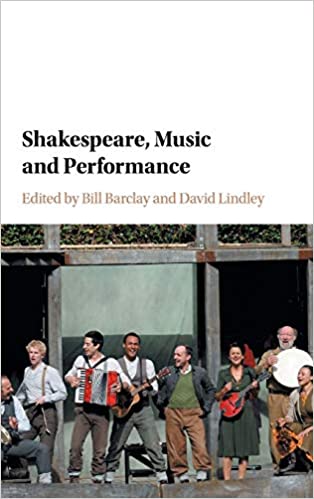
The Complete Works of John Marston has a hoped-for publishing date in 2024 from Oxford University Press. The four-volume set is from General Editors Martin Butler and Matthew Steggle, Associate Editor José A. Pérez Díez, and Assistant Editor Maria Shmygol. Lindley worked as one of the Contributing Editors at the time of his death. Butler tells me, “David was well ahead with his work on the Antonio plays. He had finished the text, collation, and commentary for both, though had not yet drafted the introductions. The general editors will honour his legacy by completing the introductions and ensuring that the editions will appear as he would have wanted.” There is some reference to the music in Antonio and Mellida and Antonio’s Revenge in the commentary, but Butler expected more in the introductions had Lindley been able to write them. There will be an essay on music in Marston’s work by Linda Phyllis Austern. Given the editorial talent involved, this should be a great edition. It is a shame I cannot ask Lindley about Marston generally, the Antonio plays specifically, and how the music in these texts reflect or contrasts with the music in other plays of the era.[3]
I would have asked David privately if he is a musician and if that has informed his books, public lectures, or work in the classroom. I asked Prof. Butler if he knew. “David was indeed a very accomplished musician. He was a good singer and as a student and postgraduate at Oxford was active in various choirs: he often used to say that over his life he had at various times sung every part in The Messiah, from treble, through alto and tenor, to bass. His wife, Bridget, is a fine soprano who often used to sing with the Yorkshire Bach Choir (an excellent amateur group based in York). He was also a recorder player and a fine organist. For decades he was organist and choirmaster at his home village in Thorner (just outside Leeds) and was a popular and much-loved figure in the community, the choir being a key part of Thorner life. He also regularly played the organ for graduation ceremonies at the University. Music often featured in his undergraduate lectures, and students not infrequently found themselves being sung at to illustrate a point about literature and music. His musical tastes were distinctive. He really only approved of early music and the baroque, and firmly held that most things went wrong after the death of Bach. He particularly disliked later styles of singing and operatic sopranos with their ‘big wobbly voices’. There was a lot of fine music at his funeral.”[4]
Lindley was born in 1948 in Wolverhampton, U. K., studied at Pembroke College Oxford, taught at Lincoln College Oxford and the University of Stirling before going to the University of Leeds in 1978. He was promoted to a Senior Lectureship in 1985, a Readership in 1995, and became Chair in Renaissance Literature in 2000 before retiring in 2013. He remained active, as his subsequent publications and projects show. David Lindley died of cancer on 20 August 2021.
Bibliography
Barclay, Bill and David Lindley eds., Shakespeare, Music and Performance (Cambridge University Press, 2017).
Donaldson, Ian and Michael P. Jensen, “Talking Books with Ian Donaldson,” Shakespeare Newsletter 63:2, Fall/Winter 2013, 69-76.
Dubrow, Heather, Genre (Methuen, 1982).
Gay, John, The Beggar’s Opera, Vivian Jones and David Lindley, eds. (Methuen, 2010).
Jonson, Ben, The Cambridge Edition of the Works of Ben Jonson, seven vols., David Bevington, Martin Butler, and Ian Donaldson, eds. (Cambridge University Press, 2012).
Leech, Clifford, Tragedy (Methuen, 1969).
Lindley, David, The Court Masque (Manchester University Press, 1984).
_____, Court Masques: Jacobean and Caroline Entertainments, 1605-1640, David Lindley, ed. (Oxford University Press, 1995).
_____, The Lyric (Methuen, 1985).
_____, Shakespeare and Music (Arden, 2005).
_____, Shakespeare at Stratford: The Tempest (Arden, 2003).
_____, Thomas Campion (E. J. Brill, 1986).
_____, The Trials of Frances Howard: Fact and Fiction at the Court of King James (Routledge, 2013).
Marston, John, The Complete Works of John Marston, Martin Butler and Matthew Steggle, eds. (Oxford University Press, forthcoming).
Oxford Dictionary of National Biography, (Oxford University Press, 2004).
Shakespeare, William, The First Quarto of ‘The Merry Wives of Windsor, David Lindley, ed., (Cambridge University Press, 2020).
_____, The Merry Wives of Windsor, Giorgio Melchiori, ed., (Arden, 2000).
_____, The Tempest, 2e (Cambridge University Press, 2013).
_____, The Tempest, 2e, Virginia Mason Vaughan and Alden T. Vaughan, eds. (Arden, 2011).
Notes
[1] https://books.google.com/books/about/Thomas_Campion.html?id=GqvCrmavhowC
[2] My thanks to Jennifer Lodine-Chaffey for sending a link to the Cambridge Jonson contributors listing the texts edited by each, and to Jessica Wolfe, Katharine Eisaman Maus, and Peter Roberts for offering to help after I received the link from Prof. Lodine-Chaffey.
[3] Follow this link to learn more: https://johnmarston.leeds.ac.uk/
[4] The 122-minute service may be found on YouTube: https://www.youtube.com/watch?v=SplYkJ56hG4
